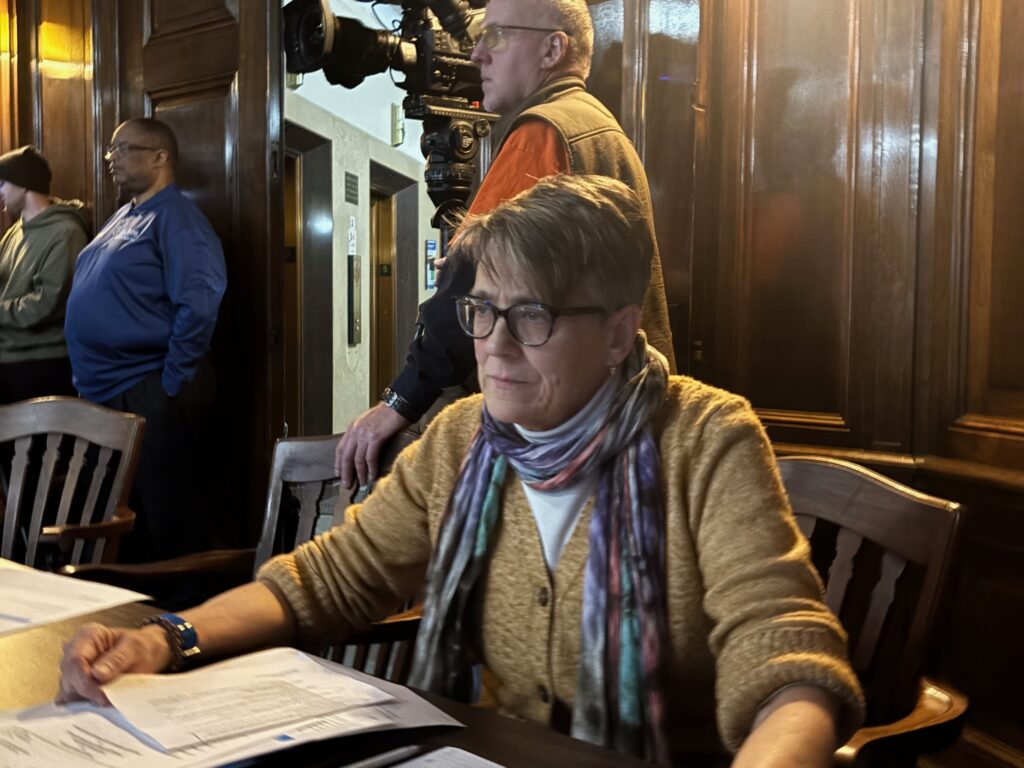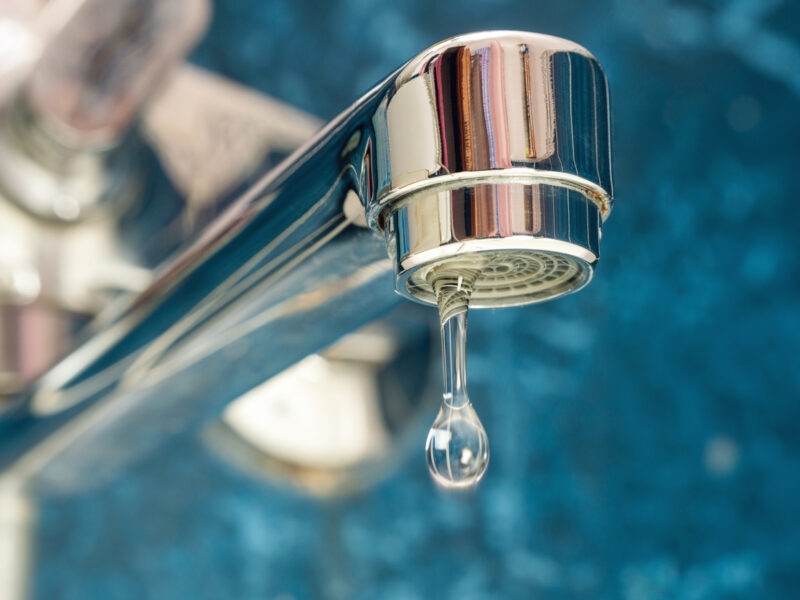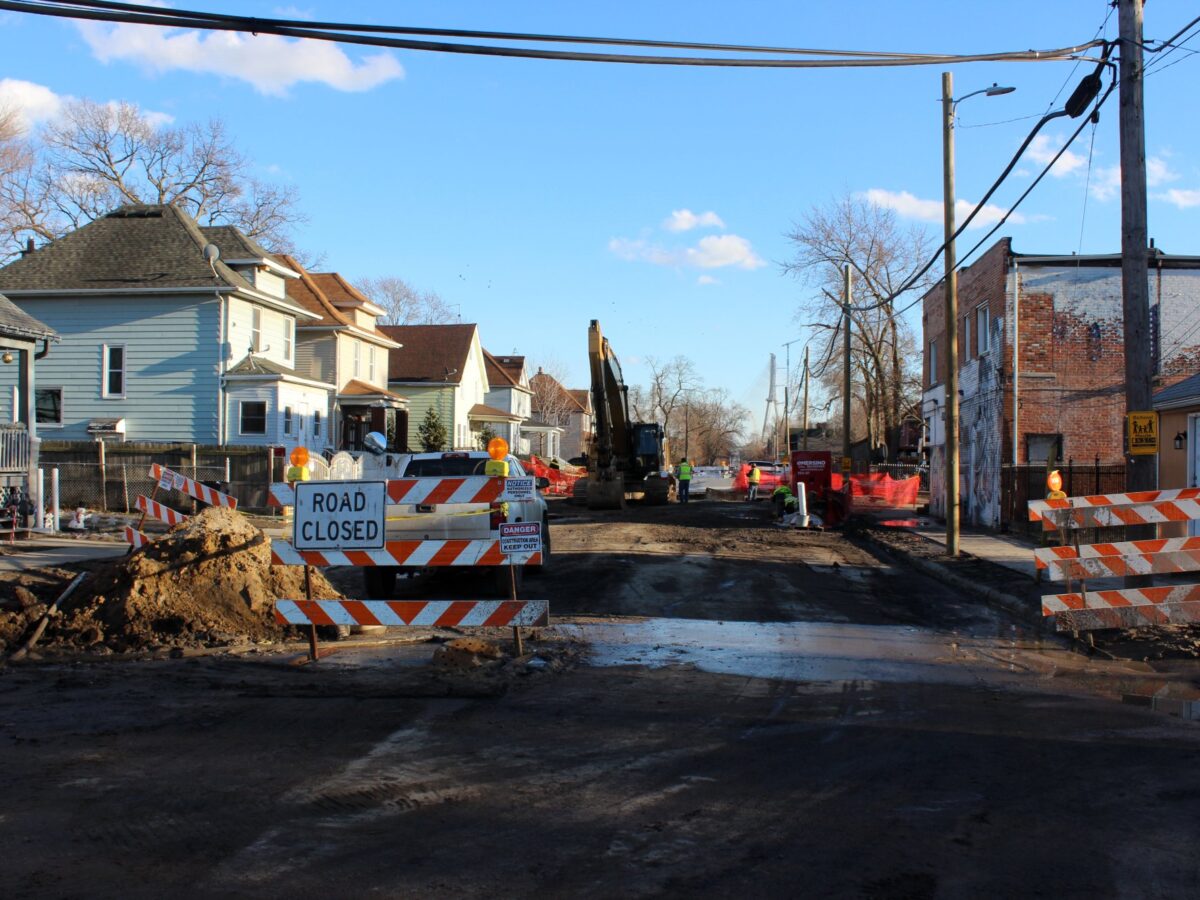Overview:
-The Great Lakes Water Authority's decision to raise metro Detroit water rates by 5.9% and sewer rates by 4.5% sparks concern among residents.
-Although this increase is less than the initially proposed hikes, it arrives as 4% rate cap nears its expiration in 2025.
-Many fear this will exacerbate financial strains on families already struggling with housing, food, and energy costs.
The Great Lakes Water Authority voted to increase water rates for metro Detroit water systems by 5.9% on Wednesday, along with a 4.5% sewer rate hike.
The increase represents a slight reduction from the 7.73% water rate hike and 5.39% sewer increase proposed by GLWA.
The decision came after dozens of people packed a GLWA hearing on Wednesday at the Water Board Building in Detroit. Roughly 300 people followed the hearing online and around 75 commented on the rate hike, all of them in opposition.
The increase comes as a 4% cap on rates — set when GLWA was founded in 2014 — is due to expire on June 30, 2025. GLWA’s wholesale rates will be passed on to local water systems, which set their own rates for customers.
GLWA officials argue the rate increase is needed to cover rising material costs, deferred maintenance, and infrastructure upgrades. Yet customers from metro Detroit and Flint noted at the hearing that the hike comes on top of dramatic water rate increases in recent decades. They argued the hike will create further hardship for residents who already struggle to afford housing, food, and energy bills.
“This is especially egregious, as hundreds of Detroit families are sitting in hotels right now because their homes were flooded in part due to GLWA’s negligence,” said Andy Goddeeris, senior policy counsel for U.S. Rep. Rashida Tlaib (D-Detroit), referring to the water main break in Southwest Detroit that left hundreds of residents without housing.
Goddeeris said the hike could compound President Donald Trump’s cuts to the social safety net, adding that the rate increase would lead to a spike in water shutoffs and a public health crisis. Tlaib’s office supported a ban on water shutoffs and the use of income-based rates to ensure affordability for low-income customers, he said.
Several speakers stressed how the economic and political climate would make a steep rate hike especially painful.
“We have residents struggling to stay alive at a time when our government is also tearing everything away from us,” said Lottie Spady, an activist living in Clarkston. “I don’t want the increase at all, but why now?”
Gary Brown, director of Detroit’s Sewerage and Water Department and a GLWA board member, suggested the rate increase strikes a balance between the need for affordability and investments in GLWA’s system.
“It’s not as low as most people want,” he said. “We feel it will fit the needs of affordability in the city of Detroit.”
In a statement, Suzanne Coffey, GLWA’s chief executive officer, said the utility faces “unprecedented cost pressures” and needs to balance infrastructure investments with fiscal responsibility.
“Our focus remains on ensuring operational reliability, long-term sustainability, and continued value for the communities we serve,” she said.
‘Hikes will hit struggling families the hardest’
The rate hike could lead to special hardships in Detroit and other cities where residents already pay for the maintenance of large systems with relatively few residents. Water affordability advocates say existing assistance programs will be unable to meet the need created by the rate increase.
The average Detroit household’s inflation adjusted water costs increased dramatically over the last 40 years, rising from roughly $300 to over $800 per year, according to a report from researchers at the University of Michigan, Michigan State University, and consulting firm Safe Water Engineering. Flint saw an even steeper increase, with costs increasing from over $300 in 1980 to more than $1,000 in 2018.
A statewide fix for these problems has remained out of reach, leaving residents to rely on local water assistance programs. Michigan legislators failed to advance legislation last year that would have created a statewide water affordability fund and capped bills for low-income residents.
In 2022, the Detroit Water and Sewerage Department began offering its Lifeline Plan, which can fix bills as low as $18 per month for some low-income customers, protect residents from shutoffs, and erase past due balances. The Detroit Free Press reported in December that DWSD’s program stopped accepting new applicants because of a lack of ongoing funding.
Southwest Detroit resident Natalie Rivera said the hike would add to the costs created by DTE Energy’s rate increases, rising housing costs, and her neighborhood’s high percentage of people living in poverty.
“These hikes will hit struggling families the hardest,” she said. “Many of us already struggle to afford food, rent (and) utilities.”
Public officials from Westland, Utica, and Highland Park called in to the hearing to say the issue is a top concern for their residents.
Highland Park Mayor Glenda McDonald said residents of her city have seen their water bills double or triple in the last year following a settlement with GLWA over the city’s water debt that added “readiness to serve” charges to cover the city’s system-wide costs.
“I don’t think you should be asking for a water rate increase. And I don’t think you should be asking for a sewer rate increase,” she said. “I think you should be trying to figure out how to lower those ready to serve parts of the bill.”
Rondi Brower with the People’s Water Board Coalition asked officials if they investigated how many customers would be unable to afford water with the rate hike, questioning whether Wayne Metro’s Water Residential Assistance Program for suburban customers would be adequately funded to meet a greater demand.
“What steps is GLWA taking to ensure that future rate increases are predictable and manageable?” she asked.

Rondi Brower of the People’s Water Board Coalition at the Wednesday GLWA hearing. Photo by Brian Allnutt.
Rate hike will lead to shutoffs, public health emergency, advocates say
Several speakers on Wednesday warned that a steep water rate hike would lead to more shutoffs and a public health crisis.
Detroiter Tahira Ahmad said water shutoffs added to residents’ health risks at the beginning of the COVID pandemic and highlighted research linking shutoffs with Hepatitis A infections in Detroit. It’s estimated the city shut off water to more 141,000 residents for nonpayment between 2013 and 2020.
Maria Matta, a public health professional who grew up in Dearborn and Dearborn Heights, said high water rates can force families to choose between paying for medication or paying their utility bills, adding that a lack of water access leads to preventable health problems and helps spread infectious disease.
“If you pass this rate increase, I will bring every (case) of waterborne illness and preventable death and disruption … to every meeting and I will hold you accountable for it,” she said.
Southwest Detroiter Emma Mullens said she was among those whose health could be affected by the economic pressures of a rate increase. Mullens said she takes Eliquis to manage blood clots, and the high price of the medication made her question if she should only take one a day, although the prescription is for two.
Monica Lewis Patrick, president and CEO of the water rights advocacy group We the People of Detroit, told Planet Detroit the rate hike would have dire consequences in Detroit, where a high percentage of the population lives in poverty and large numbers of single women of color care for two or more children.
“We believe that this is going to be another dagger in the heart of Detroiters,” she said.
MORE FROM PLANET DETROIT…
Biggest water rate hikes in a decade loom for Metro Detroit residents
Metro Detroit residents face the steepest water and sewer rate hikes in a decade, with the Great Lakes Water Authority proposing a 7.73% increase in wholesale water rates and a 5.39% increase in sewer rates for fiscal year 2026, surpassing the 4% cap that has been in place for the past 10 years and is…
Southwest Detroit flood repairs will take 6 weeks ‘minimum’
In the wake of the Southwest Detroit flood, city officials project a six-week timeline to restore homes. ‘It’s sad,’ says Elvin Nolasco, whose parents are staying in a hotel.
EPA reverses some layoffs at Chicago’s Region 5 office
EPA layoffs drive a surge in union support as workers fear more firings.




